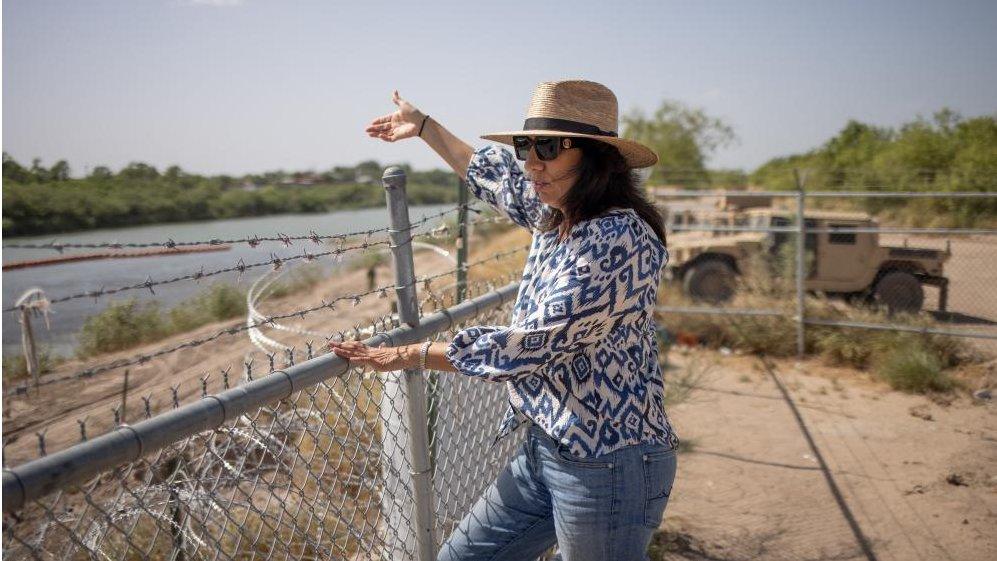Supreme Court temporarily blocks controversial Texas border law SB4
- Published
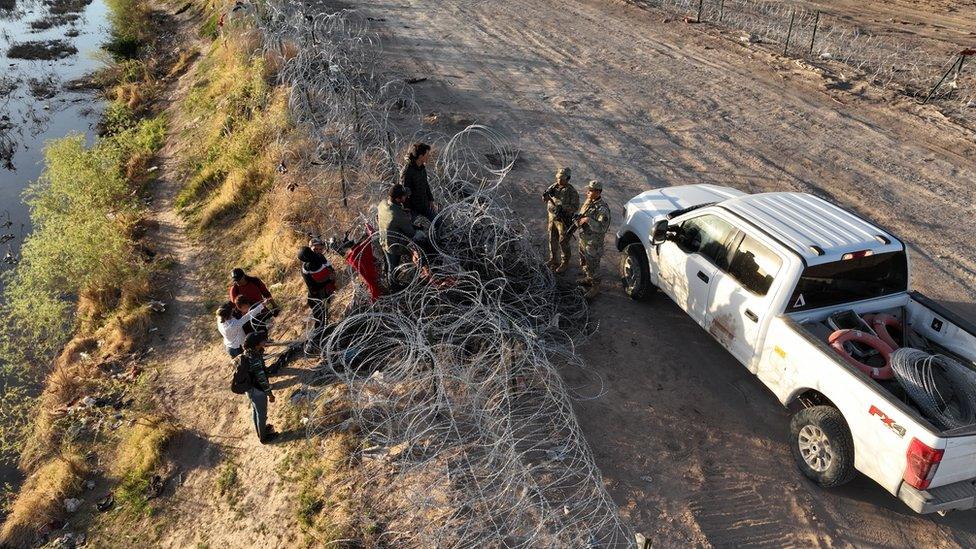
Migrants attempt to cross into the US from Mexico, in El Paso, Texas
The US Supreme Court has temporarily blocked a severe Texas law that would allow police to arrest people suspected of crossing the border from Mexico.
The law, if implemented, would be one of the toughest immigration laws passed by any US state in modern history and could upend the relationship between the state and federal governments.
Rights groups and the Biden administration have sued to stop it.
At the federal government's request, the top US court put the law on hold.
The law - known as SB4 - was originally due to come into force on Tuesday, and would make border crossings illegal and punishable with jail time. It also would significantly increase the number of deportations.
Under the legislation, local and state police officers would be allowed to make the stops and arrests, except in schools and hospitals, with more limited evidence.
But it faced legal challenges and last week a US federal court ruled the law should be put on hold.
Judge David Ezra ruled it was the federal government - rather than individual states - that had jurisdiction over immigration matters.
Texas appealed, and an appeals court temporarily suspended Judge Ezra's order over the weekend while it decided whether to allow the state's motion to move forward.
But then a further legal development came on Monday, just a day before the law was due to come into effect, when the US Justice Department asked the Supreme Court to intervene.
Justice Samuel Alito decided to temporarily block the law until 13 March - and has said Texas has until the end of next Monday to put its arguments forward.
The law could still come into force, if the Supreme Court sides with Texas.
Immigration is one of the hottest issues of this year's presidential election, especially in Texas where Governor Greg Abbott says there has been a "tidal wave" of illegal immigration.
More than 6.3 million migrants - a record high - have been detained crossing into the US illegally during President Biden's time in the White House. Reasons for the spike are complex, however, with some factors pre-dating Mr Biden's tenure.
Watch: Biden and Trump at the border: How the visits played out
Governor Abbott - a Republican who supports Donald Trump - has said the SB4 law is needed to reduce migrant crossings, and that Mr Biden's administration has not done enough.
But the federal government says SB4 would create chaos by interfering with its own immigration enforcement.
This is not the first time there's been a clash over immigration rules between Texas and Mr Biden - nor the first time the Supreme Court has intervened.
One such row has been over a roughly 30-mile (46-km) razor fence which Texas officials installed along the US-Mexico border in a larger effort to deter illegal migration.
The Biden administration has opposed it, saying the wire restricts the ability of border agents to process migrants who have already arrived on US soil.
Migrants have been known to bypass the fence, swimming and climbing under it, often getting injured in the process.
After a row in the courts, in January the US Supreme Court sided with the federal government, and ruled that the wire can be removed.
- Published26 February 2024
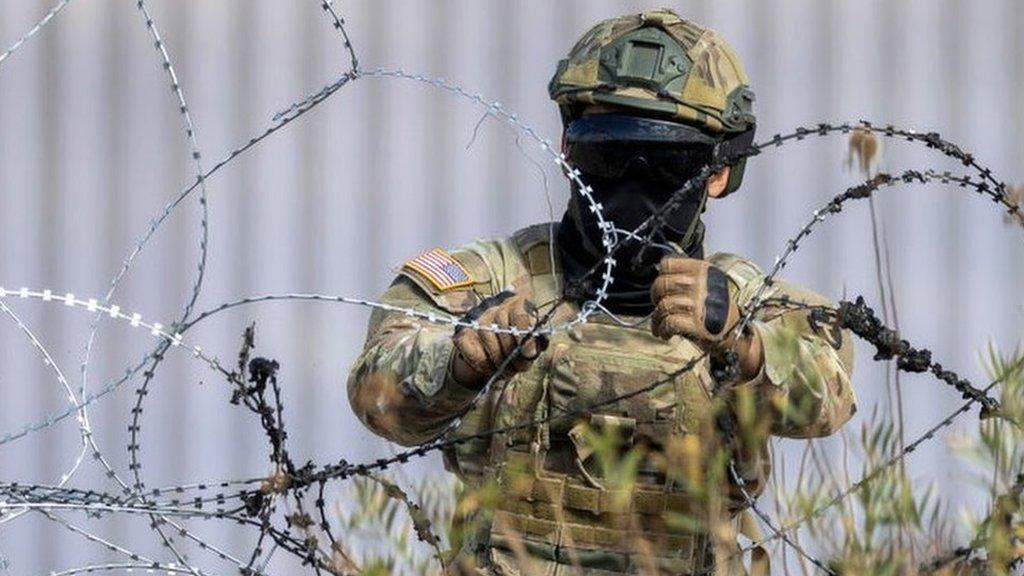
- Published28 February 2024
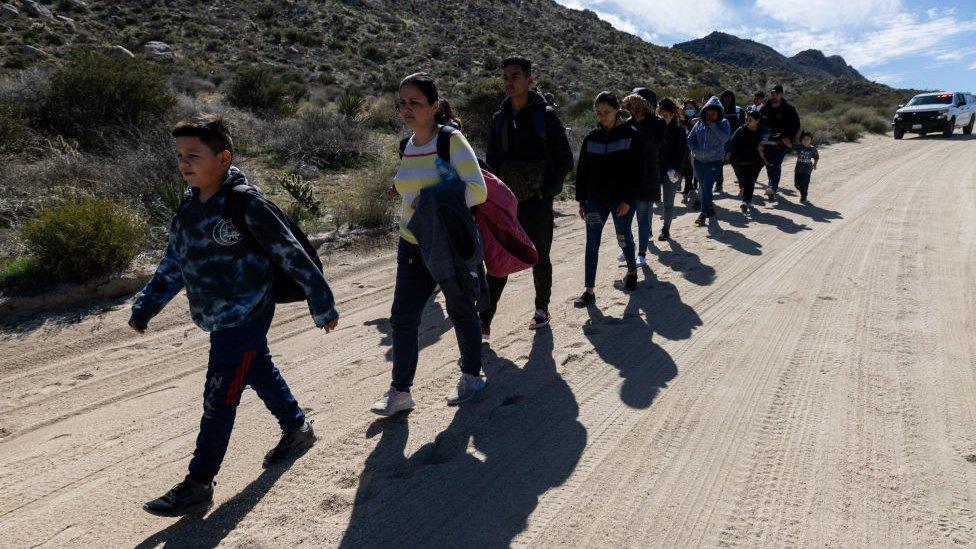
- Published1 March 2024
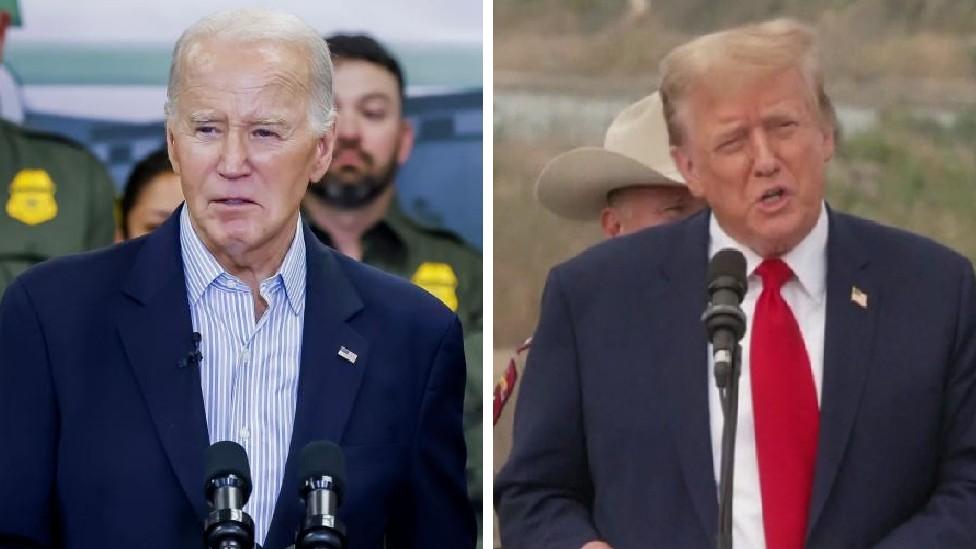
- Published29 February 2024
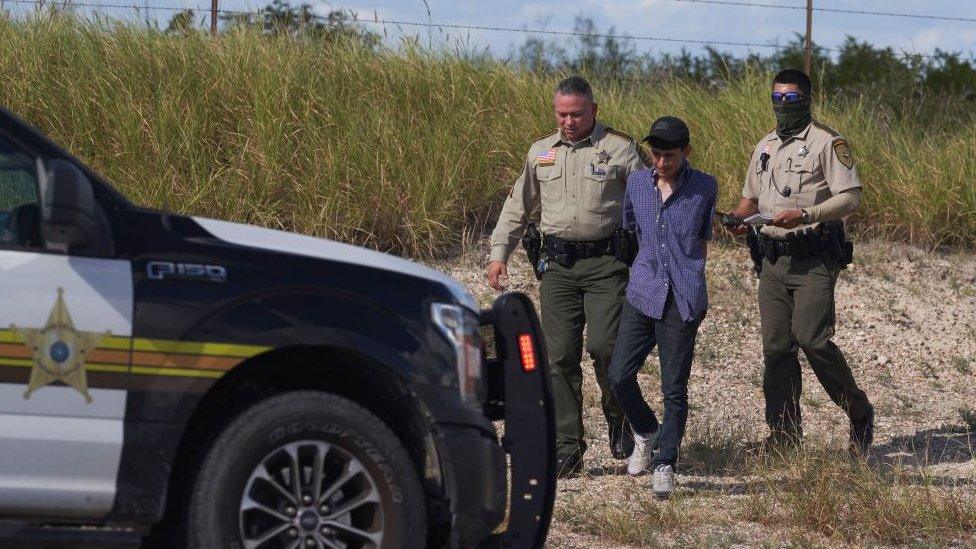
- Published3 August 2023
